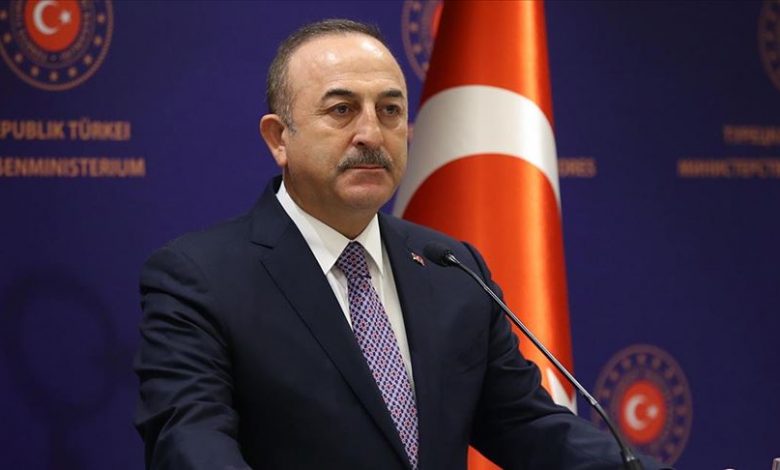Turkish FM warns Greece against provocation

Foreign Minister Mevlüt Çavuşoğlu reiterated Türkiye’s warning toward Greece against further provocation in the eastern Mediterranean and Aegean.
“While we try to respect our neighborly rights on both sides of the Aegean, Greece still continues its provocations. If you embark on an adventure on behalf of others, you will suffer the consequences today as you did in the past. This is a warning to our neighbor, Greece,” the minister said on Sept. 12 at a symposium on the Battle of Sakarya.
Stating that cannons were heard from Ankara while troops clashed in the Battle of Sakarya in Haymana, Çavuşoğlu said: “This is why the last stronghold in the national struggle is these lands. This is where we saved Anatolia, the ancient Turkish land, from Greek atrocities.”
The Battle of Sakarya took place on the banks of the Sakarya River, and the battleground, Polatli, is only 80 kilometers (50 miles) from Ankara.
Çavuşoğlu called on Greece not to be a “tool” of others and end its provocations.
“Don’t be someone else’s tool. Do not continue the provocations because Türkiye’s friendship is ancient and its hostility is grave. Keep that in mind,” he said.
The minister characterized Türkiye’s diplomacy as “entrepreneurial and humanitarian.”
“With our entrepreneurial foreign policy, we seek and protect our rights and interests in every platform. While we are surrounded by a ring of fire, we are always on alert against evil eyes and malicious plans. Our heroic army, defense industry, and satellites we send into space are in safe hands,” he stated.
Emphasizing that Türkiye has projects that will contribute to peace and prosperity not only in its region but also at the global level, Çavuşoğlu said that wherever there is a crisis in the world, eyes are turned to the country.
Pointing at Türkiye’s mediator role, Cavusoglu said: “Türkiye comes to mind when seeking solutions to crises from the Balkans to the Middle East, from the Caucasus to Central Asia, and from Africa to Latin America.”
Türkiye says Greece is stationing troops on islands in the Aegean Sea in violation of peace treaties signed after World Wars I and II.
The Turkish Defense Ministry said the Greek warplanes scrambled to harass the Turkish F-16s on Aug. 22 and 24 by locking their radars on to them. The incidents took place while the Turkish jets were escorting the American warplanes and other allied airplanes on these dates, the ministry cited.
On Aug. 23, the Crete-based S-300 air defense system of Greece locked on to the Turkish F-16s, the ministry announced, calling the move “hostile” and inconsistent with the spirit of the NATO alliance.





